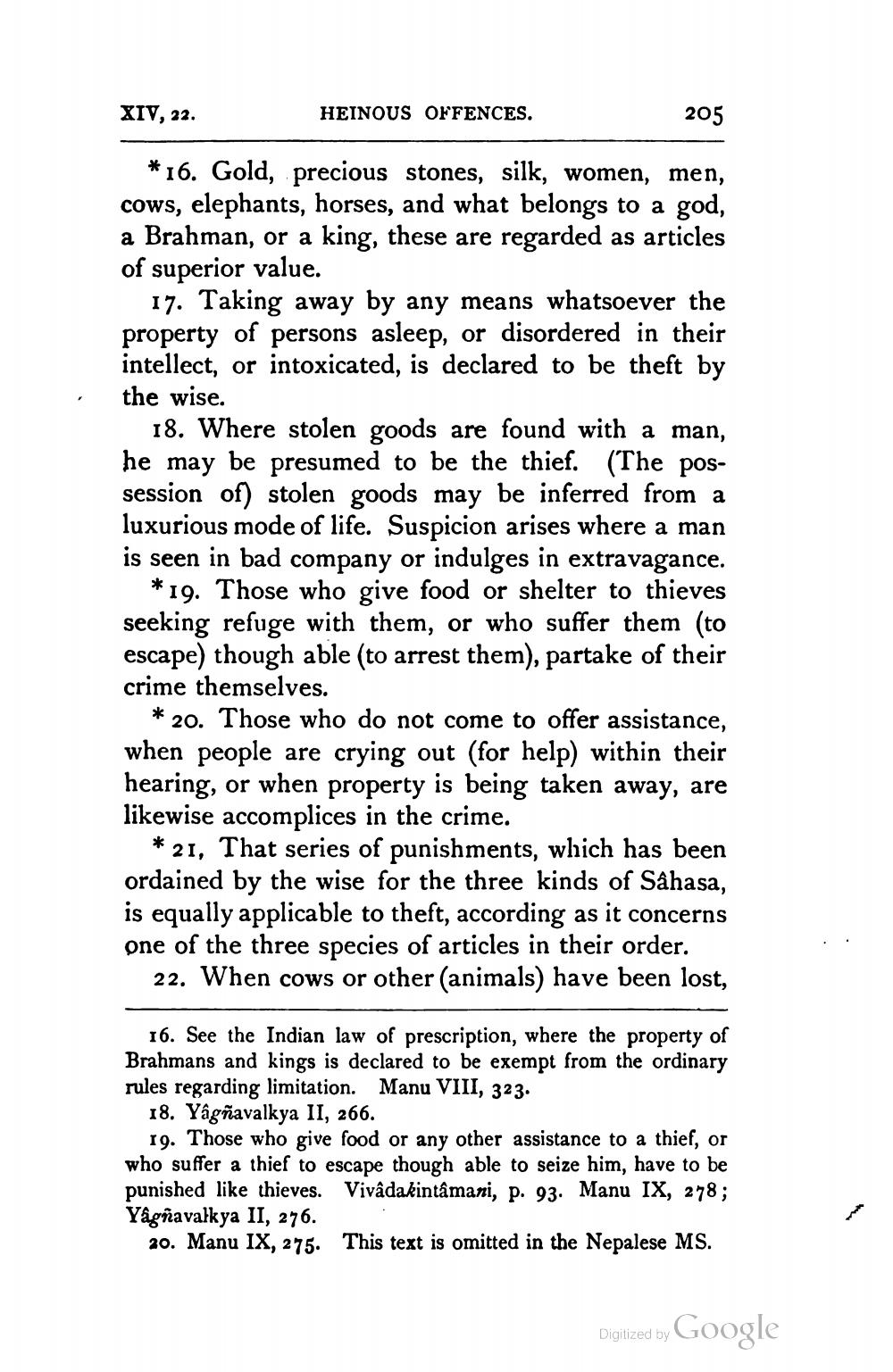________________
XIV, 22.
HEINOUS OFFENCES.
205
*16. Gold, precious stones, silk, women, men, cows, elephants, horses, and what belongs to a god, a Brahman, or a king, these are regarded as articles of superior value.
17. Taking away by any means whatsoever the property of persons asleep, or disordered in their intellect, or intoxicated, is declared to be theft by the wise.
18. Where stolen goods are found with a man, he may be presumed to be the thief. (The possession of) stolen goods may be inferred from a luxurious mode of life. Suspicion arises where a man is seen in bad company or indulges in extravagance.
*19. Those who give food or shelter to thieves seeking refuge with them, or who suffer them (to escape) though able (to arrest them), partake of their crime themselves.
* 20. Those who do not come to offer assistance, when people are crying out (for help) within their hearing, or when property is being taken away, are likewise accomplices in the crime.
* 21, That series of punishments, which has been ordained by the wise for the three kinds of Sâhasa, is equally applicable to theft, according as it concerns one of the three species of articles in their order.
22. When cows or other (animals) have been lost,
16. See the Indian law of prescription, where the property of Brahmans and kings is declared to be exempt from the ordinary rules regarding limitation. Manu VIII, 323.
18. Yâgñavalkya II, 266.
19. Those who give food or any other assistance to a thief, or who suffer a thief to escape though able to seize him, have to be punished like thieves. Vivadakintamani, p. 93. Manu IX, 278; Yagñavalkya II, 276.
20. Manu IX, 275. This text is omitted in the Nepalese MS.
Digitized by Google




